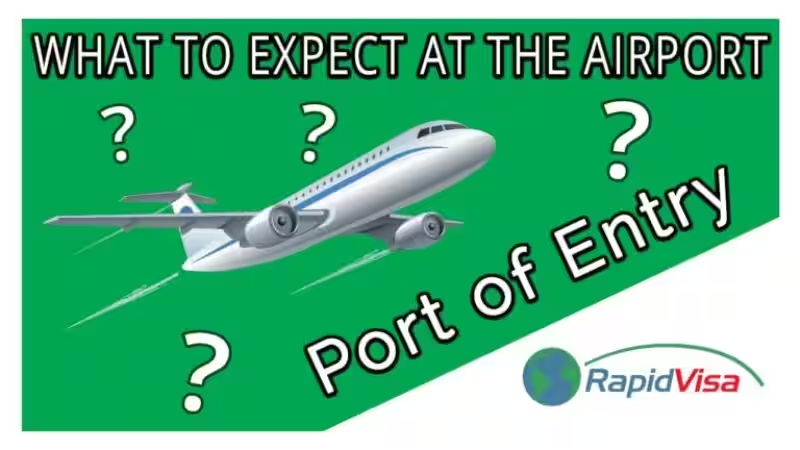K-1 Visa Denied: What To Do Next?

Receiving a K-1 visa denial is undoubtedly disheartening. This visa, designed for fiancés(es) of U.S. citizens, allows entry to the U.S. for marriage and subsequent green card application. However, many applications are denied, leaving applicants wondering what steps to take next. This article will guide you through the process, explaining common reasons for denial and outlining the path forward.
Understanding K-1 Visa Denial Reasons
The United States Citizenship and Immigration Services (USCIS) carefully reviews K-1 visa applications, looking for inconsistencies or evidence suggesting fraud. Several common reasons contribute to denials.
One frequent cause is insufficient evidence of a bona fide relationship. USCIS scrutinizes the relationship’s authenticity. Red flags include significant age differences, limited communication history, short courtship periods, contradictory statements, or inconsistencies on social media. While these factors don’t automatically lead to denial, they raise significant concerns.
Another common reason is failure to prove an in-person meeting within the two years preceding the application. This meeting is crucial; providing proof such as flight itineraries, hotel bookings, and photographs is essential. Remember, the two-year timeframe refers to the meeting, not the entire relationship’s duration.
Beyond the relationship’s legitimacy, ineligibility to marry is a significant obstacle. This includes situations where either the U.S. citizen or the fiancé(e) is already married. Proving the termination of any prior marriages with official documentation—divorce decrees, annulment papers, or death certificates—is vital.
Furthermore, the U.S. citizen sponsor must meet specific financial requirements. Generally, they must meet at least 100% of the Federal Poverty Guidelines, as evidenced by recent tax returns. They must also sign an affidavit of support, guaranteeing financial responsibility for the fiancé(e).
Finally, the couple must demonstrate a genuine intention to marry within 90 days of the fiancé(e)’s arrival in the U.S. While waivers exist for exceptional circumstances, failure to convincingly demonstrate this intent frequently leads to denial. Administrative errors like missed deadlines, incorrect fees, or missing documents can also result in a K-1 visa denied outcome.
Addressing Administrative Errors
Administrative errors are often fixable. Ensure all forms are correctly completed, all necessary fees are paid, and all supporting documents are included. Paying close attention to detail and double-checking everything before submission is crucial. Lack of attention to these seemingly minor details is a leading cause of K-1 visa denial. Remember that even a seemingly minor error can lead to a significant delay or even outright rejection.
K-1 Visa Denied: What Actions To Take
If your K-1 visa application was denied, immediate action is essential. Don’t despair; many options exist. The first and most crucial step is to consult with an experienced immigration lawyer.
An attorney can review your case, identify the reason for denial, and advise on your options. They can help you determine if the denial stemmed from a simple error or a more significant eligibility issue, and guide you on the best course of action.
Legal Options After a Denial
Several legal avenues might be available. Your lawyer can guide you through filing a Motion to Reopen (if you have new evidence to present) or a Motion to Reconsider (to challenge the decision based on errors in the initial assessment). These motions require careful preparation and a strong legal strategy.
Successfully appealing a K-1 visa denial often hinges on addressing the specific reasons for the initial rejection. For instance, if the denial was due to insufficient evidence of a genuine relationship, gathering more compelling evidence is crucial. This might involve additional photos, correspondence, and witness statements.
Improving Your Chances of Approval
To avoid a K-1 visa denied situation in the future, proactive preparation is paramount.
- Gather all necessary documentation: Compile comprehensive evidence of your relationship, financial stability, and intent to marry.
- Be completely truthful: Misrepresentation is a serious offense that can have severe consequences.
- Prepare thoroughly for the interview: Practice answering potential questions and present yourselves confidently and honestly.
- File on time and pay all fees correctly: Timely submission and accurate payment of all required fees are crucial.
A K-1 visa denied outcome doesn’t necessarily mean the end of your journey. With the right guidance and a strategic approach, you can potentially overcome the denial and achieve your goal of marrying your partner in the U.S. Remember that seeking legal counsel is often the most effective step to take after a K-1 visa is denied. Proactive planning and attention to detail can significantly increase your chances of success.
K-1 Visa Denied: What to Do Next?
This FAQ section addresses common concerns after a K-1 visa denial. Remember, this information is for guidance only and consulting an immigration lawyer is strongly recommended.
Why was my K-1 visa application denied?
USCIS denies K-1 visa applications for various reasons. The most common include:
-
Insufficient evidence of a genuine relationship: USCIS carefully examines the relationship’s legitimacy. Factors like a short courtship, significant age difference, inconsistencies on social media, or contradictory statements can raise concerns. Strong evidence of a genuine bond, including detailed communication records, photos, and travel itineraries, is crucial.
-
Lack of proof of an in-person meeting: Applicants must prove they met in person within the two years before the application. This requires substantial evidence such as flight tickets, hotel reservations, and photos from the meeting. The timeframe refers to the meeting itself, not the entire relationship.
-
Ineligibility to marry: This arises if either the U.S. citizen or the fiancé(e) is already married. Legal proof of termination of prior marriages (divorce decree, annulment, or death certificate) is absolutely necessary.
-
Failure to meet financial requirements: The U.S. citizen sponsor must meet specific income requirements (generally at least 100% of the Federal Poverty Guidelines) as proven by tax returns. They also must sign an affidavit of support, taking financial responsibility for the fiancé(e).
-
Lack of intent to marry promptly: The application must demonstrate a clear intent to marry within 90 days of the fiancé(e)’s arrival in the U.S. While waivers exist for exceptional circumstances, this intent must be clearly shown.
-
Administrative errors: Overlooking deadlines, incorrect fees, missing documents, or inaccurate information can lead to denial. Careful attention to detail is essential throughout the application process.
What should I do if my K-1 visa is denied?
A denial is not the end. Your first step should be to:
-
Review the denial letter carefully: Understand the specific reason(s) for the denial. The letter will usually outline the deficiencies in your application.
-
Consult an immigration lawyer: An experienced attorney can assess your situation, advise on your options, and guide you through the appeals process.
What are my legal options after a denial?
Your lawyer can help you determine if you can file a:
-
Motion to Reopen: This allows you to submit additional evidence to address the reasons for denial. This requires compelling new evidence that was not available during the initial application.
-
Motion to Reconsider: This challenges the decision based on errors made by USCIS during the initial processing.
The success of these motions depends significantly on the strength of your new evidence or the nature of the errors made.
How can I improve my chances of approval in a future application?
-
Gather comprehensive supporting documentation: Assemble extensive evidence demonstrating a genuine relationship, financial stability, and intent to marry.
-
Ensure complete accuracy: Be completely truthful and accurate in your application. Any misrepresentation can severely jeopardize your chances.
-
Prepare thoroughly for the interview: Practice answering potential questions and present yourself professionally.
-
Meet all deadlines and pay all fees correctly: Attention to detail is crucial for a successful application.
Proactive preparation and seeking legal counsel significantly enhance your chances of K-1 visa approval. Understanding the potential pitfalls and addressing them proactively is key to avoiding future denials.








